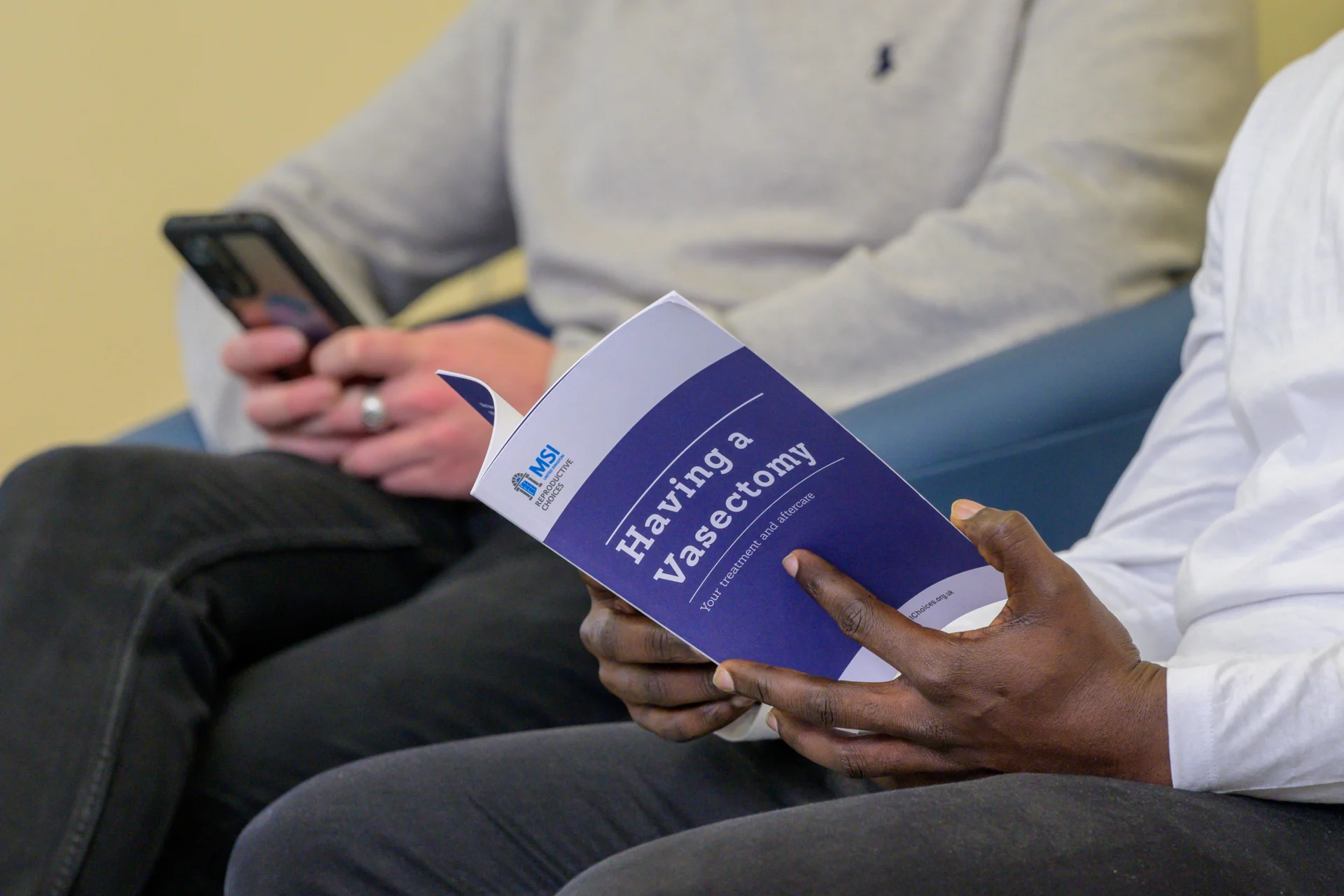Clinicians will always assess the risks and benefits of contraceptive methods for each individual, and consider all alternatives.
In this blog, Julia Hogan – Independent Trainer in Long Acting Reversible Contraception – explains:
- The risks associated with the combined contraceptive pill
- The risk of developing blood clots from the pill
- The importance of access to all forms of contraception and information about contraception
The combined pill is a daily tablet that contains two hormones, progestin and oestrogen, which are similar to hormones in your body.
The hormones prevent an egg from being released by the ovaries each month and make it harder for sperm to get into the uterus (womb).
The pill needs to be taken once a day for three weeks and then you can have a week’s break to have a period, or you can continue to take the pill every day to avoid having a period.
You can learn more about how the combined contraceptive pill works in our blog.
What are the risks associated with the combined contraceptive pill?
The contraceptive pill is often the first method people will ask for. It is easy to use and you can stop and start whenever you like without the need to see a healthcare provider. It can also provide benefits such as lighter, predictable periods and improved acne.
Combined hormonal contraceptives are very safe for most people to take. Some of the rare risks associated with combined contraceptive methods include the development of a blood clot in your leg or lungs, a heart attack, or a stroke. This very small increased risk of venous thrombosis (VTE) with use of the combined pill is far lower than the risk during or after pregnancy.
It is also important to note that the progestogen-only pill (POP) does not carry the same risk.
The benefits of taking the combined pill outweigh the possible risks, but it is essential that all our clients have access to quality advice and information when it comes to contraception.
For anyone with higher risk factors, there are alternative oral contraceptives which give no increased clotting risk and suit most very well. The essential element is that contraception and quality advice are readily available. Being able to access this – and having the really effective and convenient long-acting reversible methods available without a long wait – is where the priority should lie.
What is the risk of developing blood clots from the pill?
The contraceptive pill is very safe for most people to take and the benefits far outweigh any risks. I would advise anyone worried about possible side effects from the contraceptive pill to seek advice from their GP before discontinuing, not least as there is a far larger risk of blood clots during and after pregnancy. For more information about the different contraceptive options visit MSI’s digital contraceptive counsellor.
It is well documented that use of combined hormonal contraception is associated with a small increased risk of venous thrombosis, but all contraception including the combined oral contraceptive pill is safer than being pregnant. Developing a clot is a rare event but someone is five times more likely to develop a clot when pregnant than when on the pill.
Do you have concerns about the prescription of the contraceptive pill – is it over prescribed?
As long as people are informed and have access to the full range of methods, the number being prescribed the pill is not a concern. However, today accessing the most effective long acting methods, like the implant and coil (IUD or IUS) can be challenging. It is essential that advice and access to contraception, including long-acting reversible methods are readily available without a long wait.
VIDEO: The combined contraceptive pill
In this short video, we share all you need to know about the combined contraceptive pill, including how to use it, how effective it is, advantages, disadvantages and risks.
“CHOICE”: MSI UK’s digital contraception counsellor
At MSI UK, we believe that information about contraception should be readily available. If you need help finding the best contraceptive method for you, try our digital contraception counsellor “Choice”. Using “Choice”, you can receive personalised contraceptive advice by answering a few short questions about your lifestyle, preferences, needs and medical history.
Useful links:
We would advise anyone worried about possible side effects from the contraceptive pill to seek advice from their GP before discontinuing, not least as there is a far larger risk of blood clots during and after pregnancy.
- For more information on who can use the combined pill, you can visit the NHS website here: Combined pill: Your contraception guide
- To read more on the mini-pill, follow this link: “The progestogen-only pill or the mini-pill: everything you need to know”
- To learn more about how the contraceptive pill works read our latest blog: “The combined pill: what it is and how it works”.











































